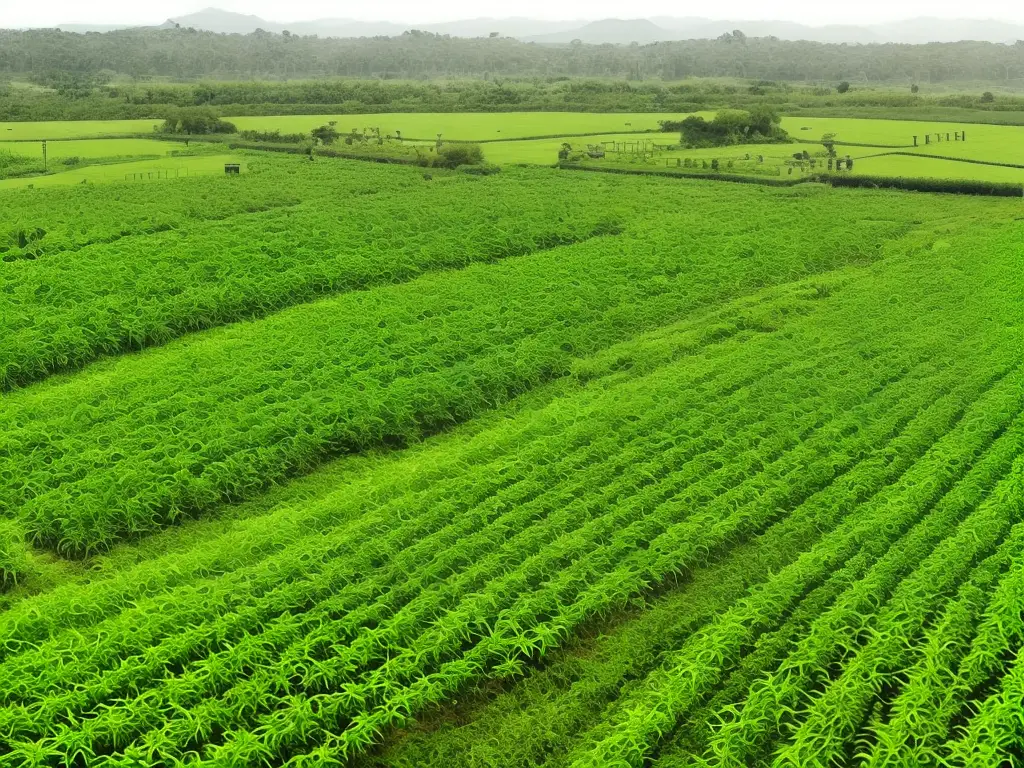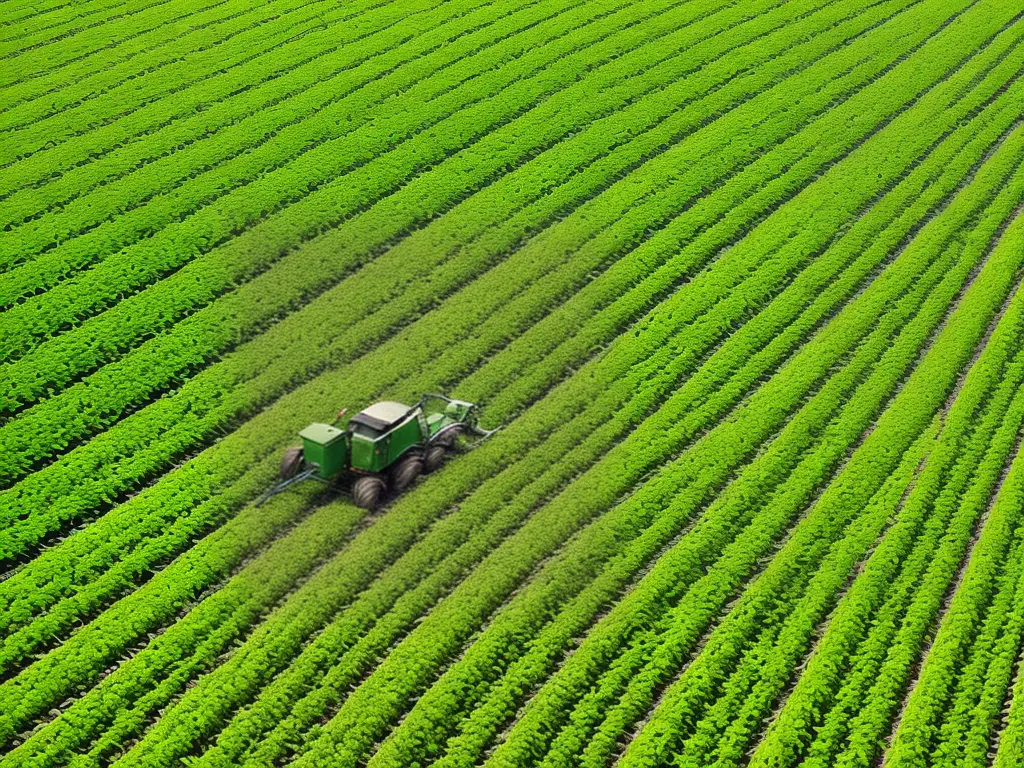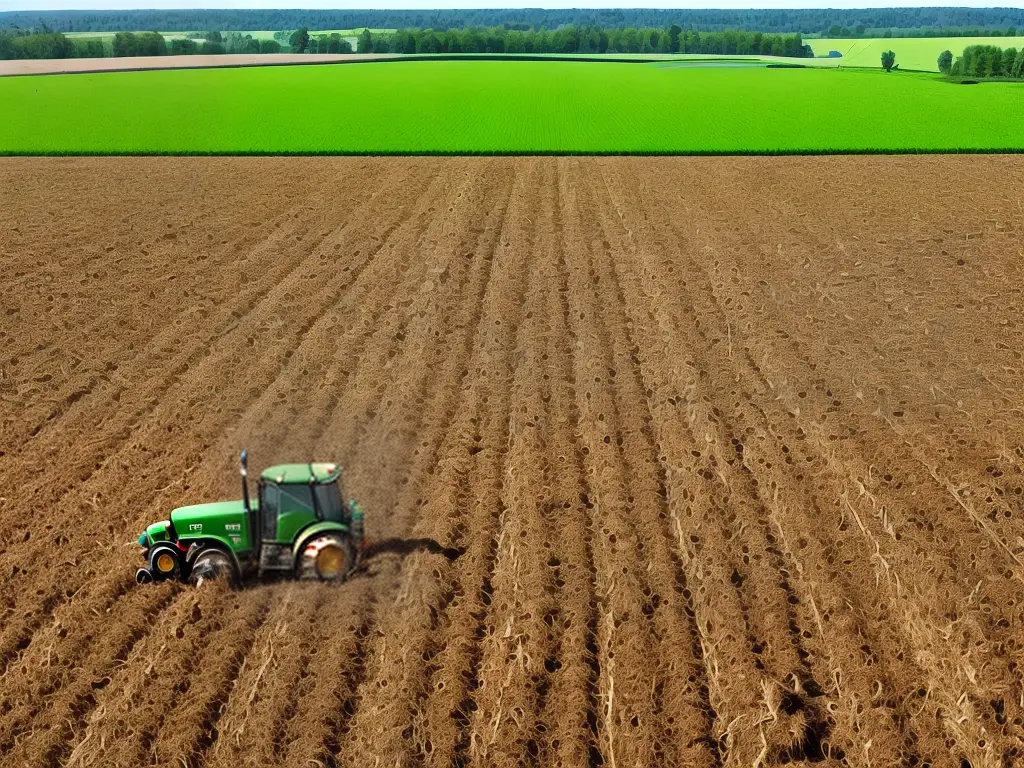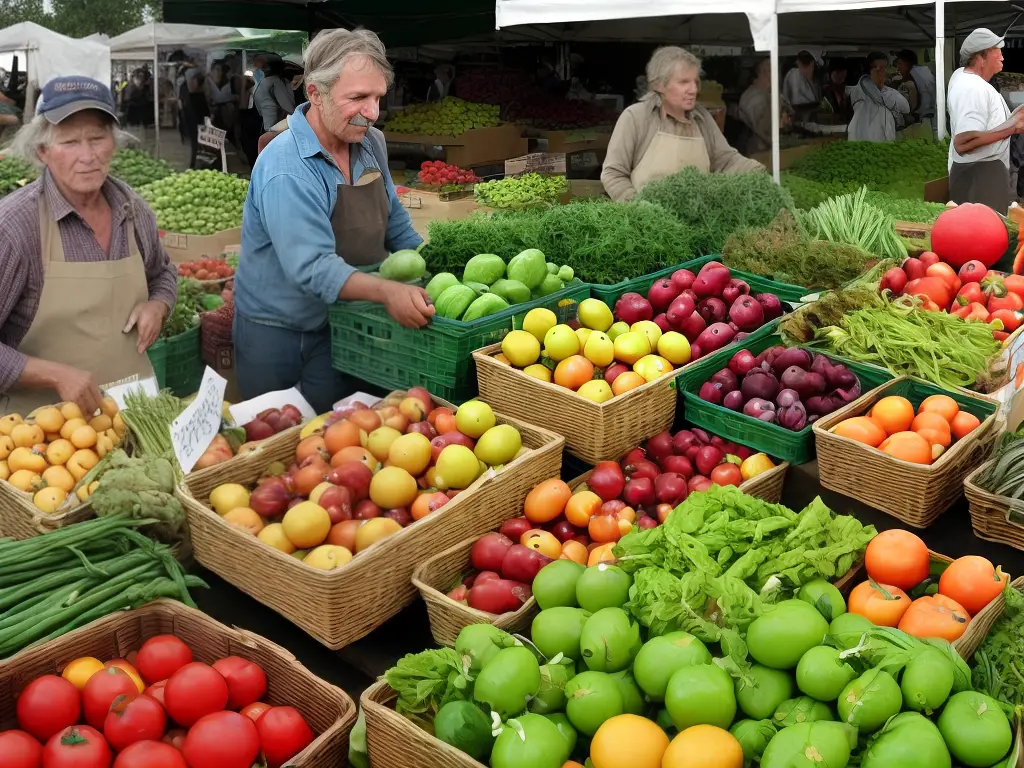Introduction to Sustainable Farming Practices and Organic Farming
Sustainable farming practices aim to reduce the environmental impact of agriculture while ensuring food security and maintaining the economic viability of farming communities. Organic farming is a type of sustainable farming technique that focuses on the use of natural inputs and methods to improve soil fertility, promote biodiversity, and enhance the overall health of the ecosystem. This article delves into the various sustainable farming practices, types of organic farming, and the numerous benefits.

Sustainable Farming Practices
There are numerous sustainable farming practices that farmers can adopt based on their specific needs, resources, and location. Some of these practices are highlighted below.
1. Crop rotation
Crop rotation is the process of planting different types of crops in the same area over a sequence of growing seasons. This practice helps improve soil fertility and prevents the build-up of pests and diseases in the soil.
2. Cover cropping
A cover crop is a crop planted between main crops to control weeds, prevent soil erosion and enhance soil fertility. This practice helps to protect the soil and provides various benefits such as improved nutrient cycling and reduced pest pressures.

3. Conservation tillage
Conservation tillage is a method of soil cultivation that reduces soil disturbance while maintaining a protective layer of residue on the soil surface. This practice conserves soil moisture, improves soil structure and reduces erosion.
4. Integrated pest management (IPM)
IPM is an environmentally sensitive approach to managing pests that combines biological, cultural, and chemical methods of control. This approach minimizes the use of synthetic chemicals and promotes the use of natural predators and parasites to regulate pest populations.

5. Agroforestry
Agroforestry integrates trees and shrubs into agricultural systems. This practice helps to improve soil fertility, conserve water, sequester carbon, provide habitat for wildlife, and increase farm profitability.
6. Livestock integration
Integrating livestock into crop production systems has the potential to recycle nutrients, reduce the need for external inputs and provide additional income sources for farmers. This can be achieved through managed grazing systems or by raising livestock to process crop residues and by-products.

Types of Organic Farming Techniques
Organic farming focuses on producing food without the use of synthetic chemicals, genetically modified organisms, and growth hormones. There are various techniques that are integral to organic farming. Some of these techniques include:
1. Biodynamic farming
Biodynamic farming is a holistic approach that considers the farm as an interconnected living system. This method follows a set of principles and practices to enhance soil fertility, grow healthy plants, and promote biodiversity. It integrates cosmic rhythms in agricultural tasks, such as planting and harvesting, as well as the use of specific preparations made from plants, minerals, and animal components.

2. Permaculture
Permaculture is a design system that seeks to create sustainable and self-sufficient agricultural landscapes that mimic natural ecosystems. It incorporates the use of perennial plants, multi-functional species and encourages the recycling of nutrients and waste on the farm. The aim of permaculture is to produce an abundance of food while minimizing external inputs and environmental impact.

Benefits of Organic Farming
Organic farming offers a wide range of benefits, including:
1. Environmental benefits:
- Reduces the use of synthetic chemicals, which prevents water pollution and minimizes the risk of soil contamination.
- Promotes biodiversity by providing habitats for various species and encouraging the growth of native plants and animals.
- Helps combat climate change by sequestering carbon in the soil.

2. Health benefits:
- Organic foods often have higher nutritional content compared to conventionally grown produce as a result of healthier soils.
- Reduces the risk of exposure to harmful chemicals, such as pesticides and herbicides, which have been linked to various health problems.

3. Economic benefits:
- Organic farming can be more profitable for farmers, as organic products often command higher prices in the market.
- Reduces the dependence on external inputs, such as synthetic fertilizers and pesticides, lowering the overall cost of farming.
- Create job opportunities and help to revitalize rural communities.

